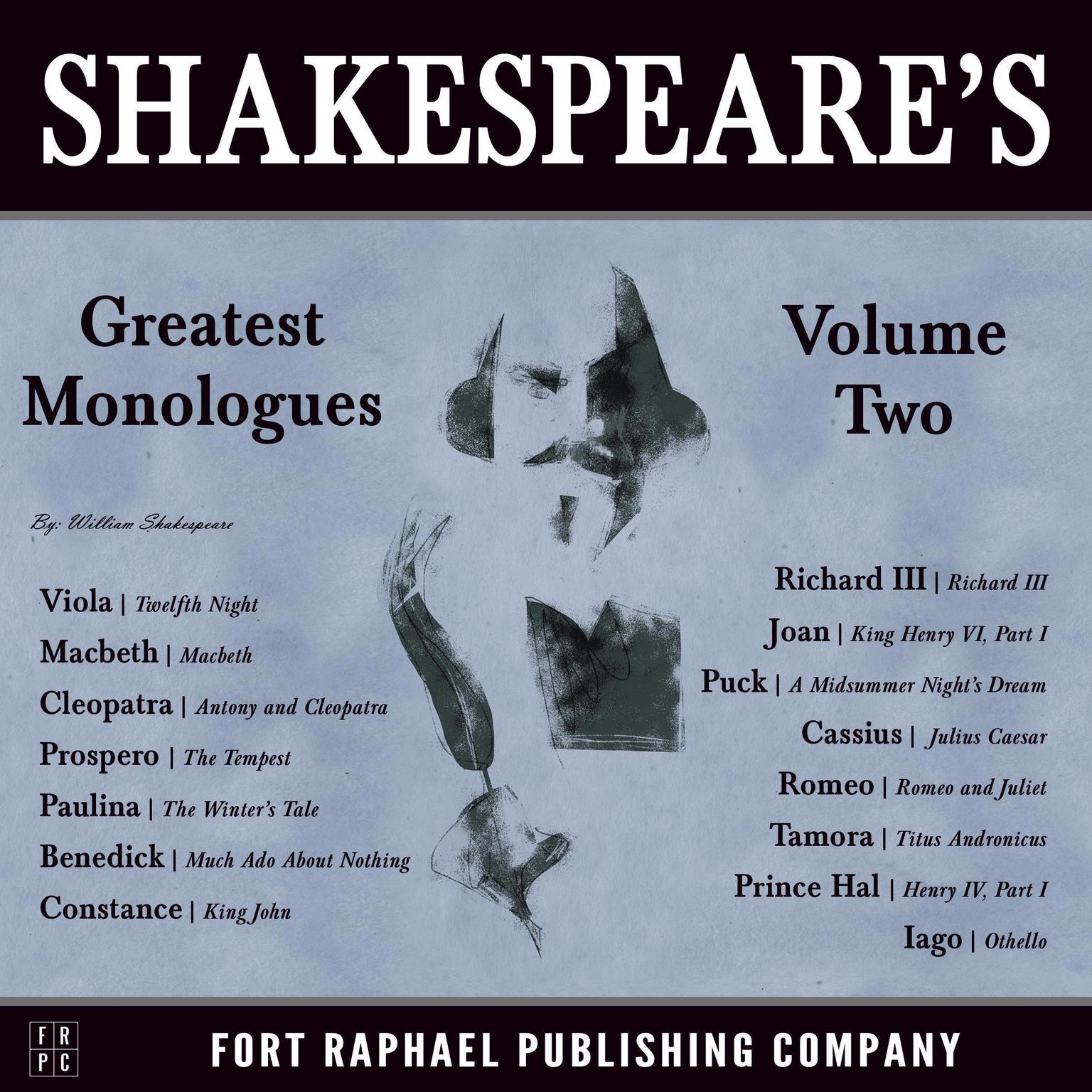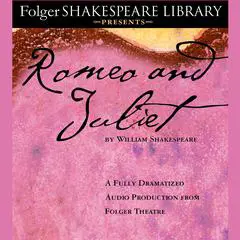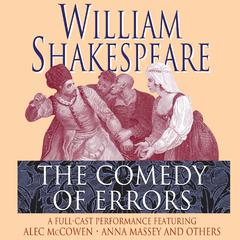 Play Audiobook Sample
Play Audiobook Sample
Shakespeare's Greatest Monologues: Volume II Audiobook
 Play Audiobook Sample
Play Audiobook Sample
Quick Stats About this Audiobook
Total Audiobook Chapters:
Longest Chapter Length:
Shortest Chapter Length:
Average Chapter Length:
Audiobooks by this Author:
Publisher Description
William Shakespeare, long hailed as history's greatest dramatic writer, has been lauded for his mastery of poetic expression, his insight into the human condition and his deep exploration into the psyche and motivations of his characters. These skills are perhaps best encapsulated in the monologues he gives his various protagonists, villains and bit players. From the ambitious Scottish general Macbeth contemplating the assassination of his sovereign king to the saintly Joan of Arc from "Henry VI" inspiring soldiers to follow her into battle, to Richard III's evil and traitorous plotting, to the mischievous sprite Puck from "A Midsummer Night's Dream" celebrating his bewitching of the Fairy Queen, Shakespeare's monologues are short distillations of his larger themes - love and loss, fairness and inequity, power and envy, lust and purity. Fort Raphael Publishing is proud to present, in this first volume, some of Shakespeare's greatest monologues, each of which captures a shining, brilliant moment from his plays that gives us a deeper understanding of each character, whether flattering, damning or inspiring.Enjoy this collection of monologues from the greatest theatrical writer in the English language - William Shakespeare.
Download and start listening now!
Shakespeare's Greatest Monologues Listener Reviews
Be the first to write a review about this audiobook!
About William Shakespeare
William Shakespeare (1564–1616), English poet and dramatist of the Elizabethan and early Jacobean period, is the most widely known author in all of English literature and often considered the greatest. He was an active member of a theater company for at least twenty years, during which time he wrote many great plays. Plays were not prized as literature at the time and Shakespeare was not widely read until the middle of the eighteenth century, when a great upsurge of interest in his works began that continues today.
About the Narrators
Mark Richard was born in
Manhattan and grew up surrounded by potato fields, clams, and bluefish on
eastern Long Island. After a year at the University of Freiburg in Germany with
brief sojourns in Rome, Paris, and Lille, he returned to the United States and became
a substitute teacher in the Boston Public School system. Shortly thereafter,
while at UMass-Amherst, meaning to study political philosophy, he was seduced
by the philosophy of language and linguistics. He was a professor in the
philosophy department at Harvard before attaining his current position as
professor and chair of philosophy at Tufts University.
David Blixt is an author of historical fiction, whose works have been named an Editor’s Choice fy the Historical Novel Society and been a finalist for the M. M. Bennetts Award for Historical Fiction. His novels, which span the Roman Empire and early Renaissance Italy to England’s Elizabethan era, combine a love of the theater with a deep respect for the quirks and passions of history.























